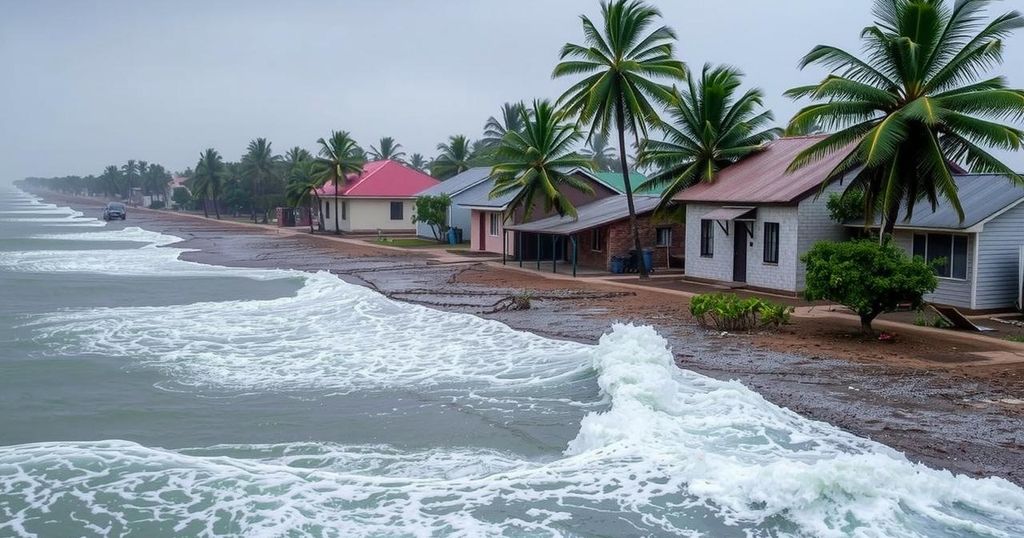Cyclone Chido has devastated northern Mozambique, resulting in 120 deaths and 868 injuries. Approximately 680,000 individuals are affected, with over 140,000 homes destroyed. Severe damages include losses in education and health sectors, prompting the establishment of emergency shelters for displaced individuals. The catastrophe highlights the need for improved infrastructure resilience against climate change.
The recent devastation caused by Cyclone Chido in northern Mozambique has resulted in a tragic death toll that has reached 120 individuals, alongside 868 injuries. As reported by Mozambique’s national disaster relief agency, more than 680,000 people have been significantly affected by the cyclone’s catastrophic impact. The provinces of Cabo Delgado, Nampula, and Niassa have experienced severe destruction due to tumultuous weather, including heavy rainfall and flooding, which commenced when the cyclone made landfall on December 15. Furthermore, an alarming number of families, numbering over 123,000, equivalent to approximately 622,610 people, have been impacted, with more than 140,000 homes either partially or completely destroyed. The infrastructure has suffered extensively, with damage to 250 educational institutions, 89 public buildings, and 52 healthcare facilities, leaving nearly 110,000 students affected.
Cyclone Chido formed in the southwestern Indian Ocean on December 5, subsequently wreaking havoc on the French overseas territory of Mayotte before hitting Mozambique on December 15. Defined as a tropical depression, Cyclone Chido exhibited characteristics of low atmospheric pressure and circular wind patterns, with a potential to escalate into a tropical storm and subsequently into a tropical cyclone. The immense impact on Mozambique’s communities has intensified discussions regarding the need for resilient planning to safeguard social infrastructure against the increasing threat posed by climate change, which has underscored the vulnerability of these systems.
In summary, Cyclone Chido has had a devastating effect on northern Mozambique, leading to considerable loss of life and extensive damage to infrastructure. The disaster has prompted urgent calls for humanitarian assistance to support the affected communities and has illuminated the pressing need for enhanced disaster preparedness and resilient planning in the face of climate change. Continued efforts from local and international organizations are essential to address the ongoing repercussions of this calamity effectively.
Original Source: www.socialnews.xyz






